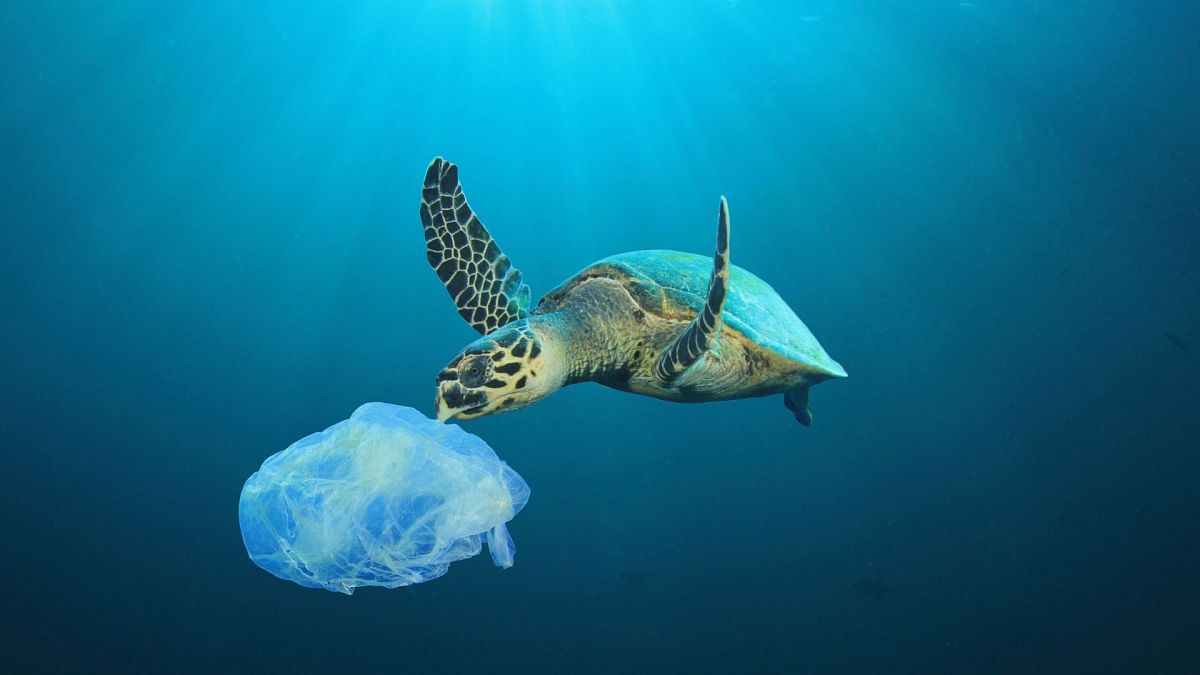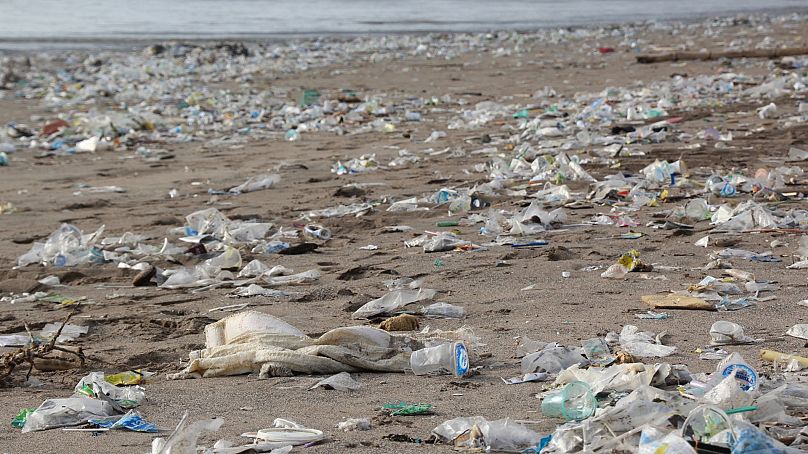Single-use plastic bags clog up our rivers and seas. Banning them helps change that.
Plastic bags are everywhere - littering our streets, clogging up our rivers, and choking wildlife in the ocean.
But after years of campaigning from environmental groups, many places have banned them entirely.
Over 100 countries now have a full or partial ban on single-use plastic bags. Between 2010 and 2019, the number of public policies intended to phase out plastic carryout bags tripled.
The results of such tough rules are starting to show.
So how do plastic bag bans work - and what do locals think of them?
What is a plastic bag ban?
A plastic bag ban is a law that restricts the use of lightweight plastic bags in shops. Sometimes they are totally banned, and sometimes consumers have to pay a fee to buy them.
The bans often only apply to thin plastic bags, with thicker, reusable ones still available for purchase.
Bangladesh became the first country to introduce a ban on plastic bags back in 2002.
Globally, bans are imposed with various degrees of severity. In Kenya, manufacturing the bags - which clog the country’s infrastructure and cause flooding - can land you with up to four years in prison or a €36,000 fine.
Such total bans are common throughout Africa and Asia. These areas import much of the Global North’s ‘recyclable’ rubbish and so face the consequences of plastic mismanagement more acutely.
In addition to plastic bags, many countries ban other types of single-use plastic like in the EU which has got rid of single use cutlery, straws, balloon sticks, and coffee buds.
Which European countries use the most plastic bags?
In Europe, 18 countries have imposed bans on thin plastic bags - including France, Germany, Italy, Iceland, and Albania.
A further 23 countries require consumers to pay a fee. Two more - Switzerland and Norway - allow the plastic industry to impose a ‘voluntary charge’ on the use of the bags.
Plastic bag consumption is highest in the Baltic and Nordic countries, Eurostat data from 2019 reveals. Latvia (284 bags per person, per year) and Lithuania (332) consumed far more plastic bags than any other European country. This could change, however as from 2025, Latvian shops will no longer be permitted to give away free plastic bags. A similar prohibition will come into force in Lithuania this year.
The lowest usage can be found in Portugal (8), Belgium (17) and Poland (23). Portugal banned the bags in 2021, two years after Poland.
Do plastic bag bans work?
Plastic bag bans have so far been highly successful. A ban on thin plastic bags in California reduced consumption by 71.5 per cent.
Research shows that taxes work too. According to a 2019 review of existing studies, levies and taxes led to a 66 per cent reduction in usage in Denmark, more than 90 per cent in Ireland, between 74 and 90 per cent in South Africa, Belgium, Hong Kong, Washington D.C., Santa Barbara, the UK and Portugal, and around 50 per cent. in Botswana and China.
And the impact is visible on the ground too.
At a 2022 annual beach clean in New Jersey, US - where a ban was recently introduced - the number of plastic bags collected dropped 37 per cent on the previous year. Straws and takeaway containers dropped by a similar amount.
“It’s really, really encouraging to see those numbers trending down for the bags, straws, and foam containers,” said Clean Ocean Action Executive Director Cindy Zipf. Clean Ocean Action is a charity that is instrumental in organising the beach clean.
What does the public think of plastic bag bans?
Taxes are usually received negatively by the public.
But plastic bag taxes are a different story. In Ireland - where plastic bag usage dropped 90 per cent after the implementation of a tax - the policy was very popular.
"The Irish plastic bags levy has proved so popular with the Irish public that it would be politically damaging to remove it,” wrote researchers in a 2007 paper.




